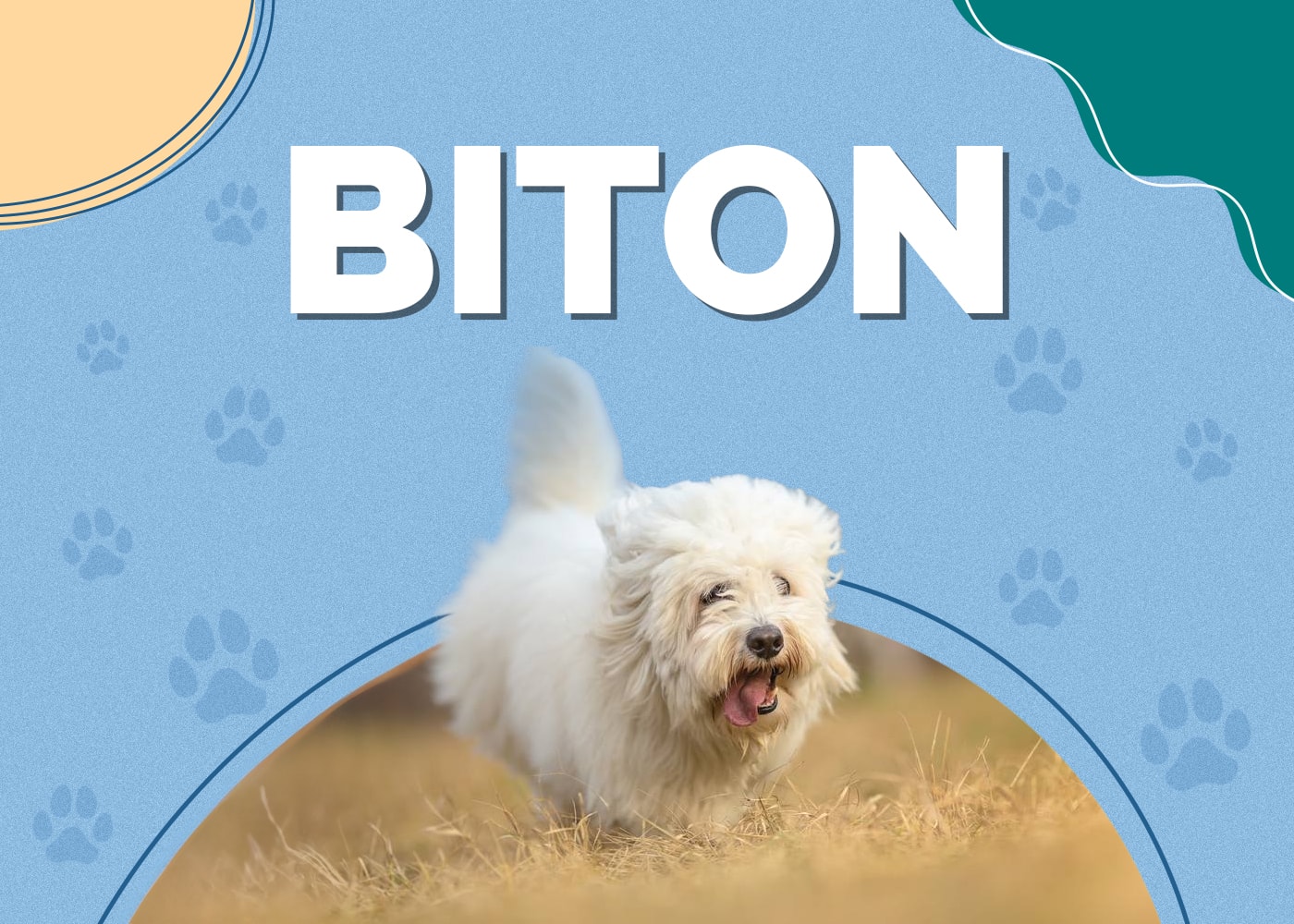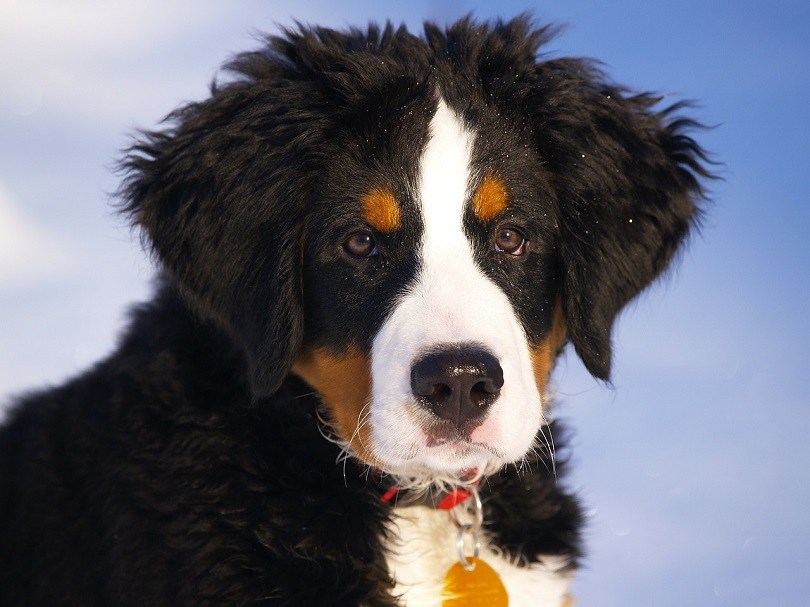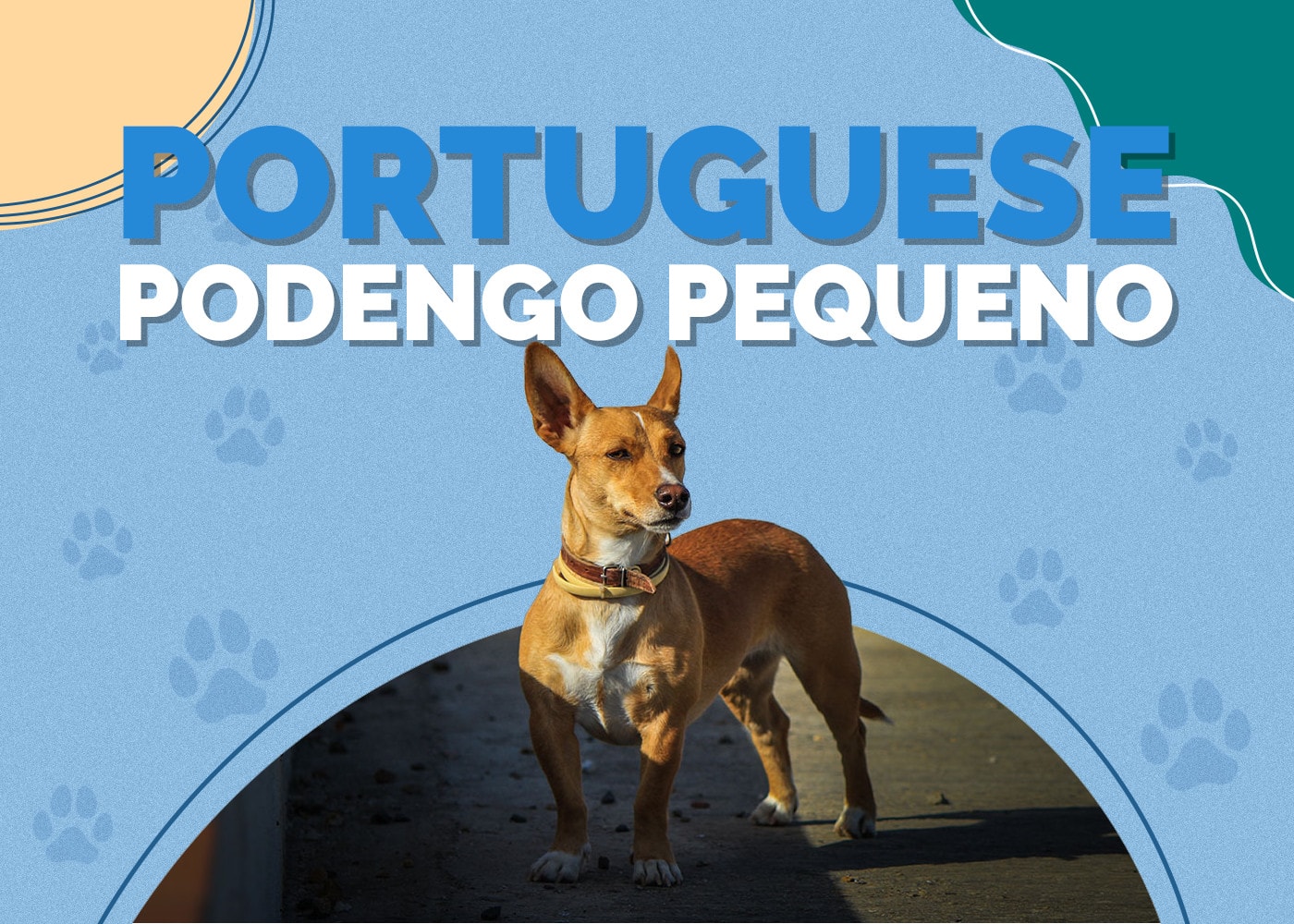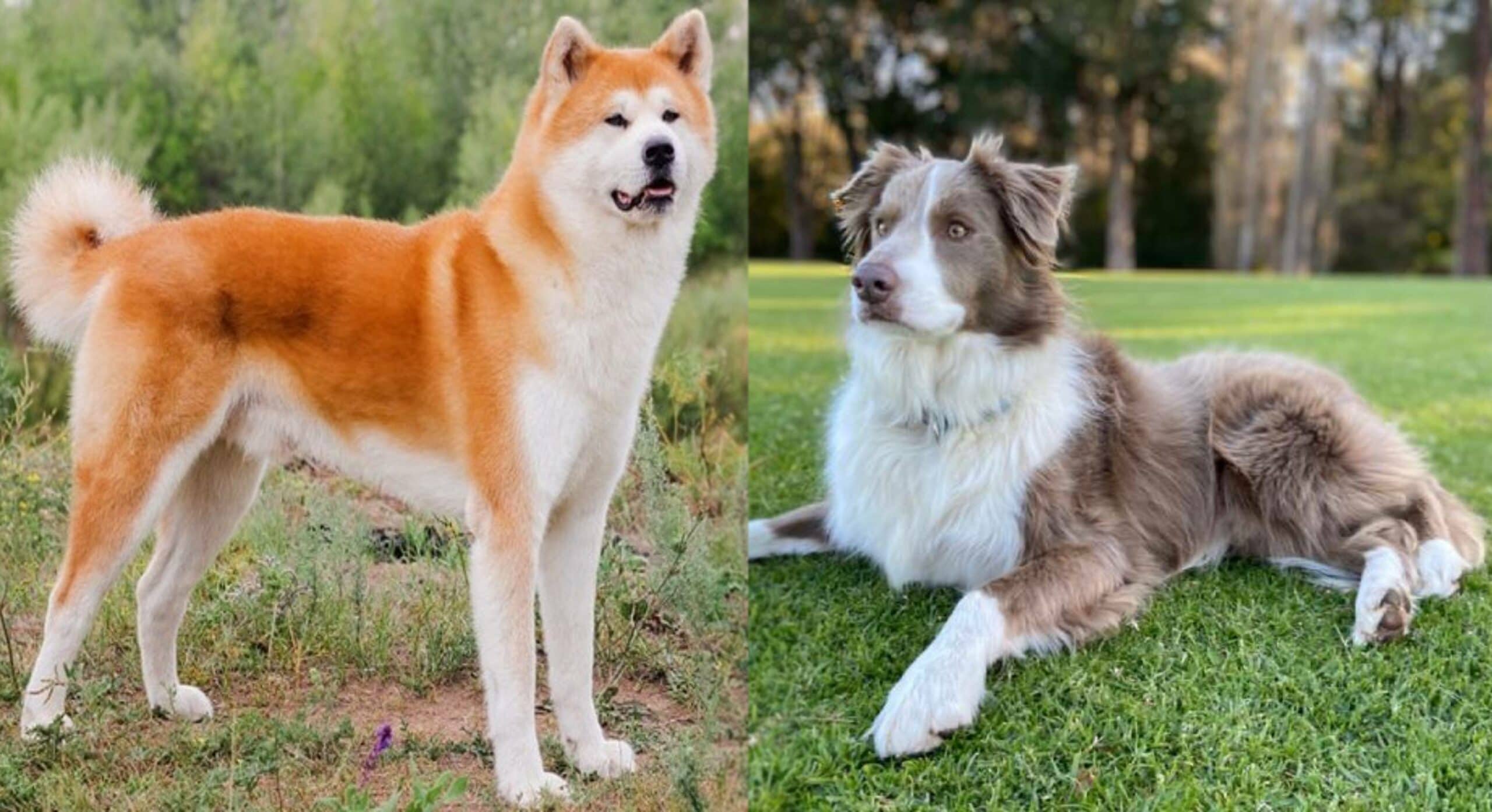Biton (Bichon Frise & Coton De Tulear Mix) Info, Pictures, Traits

Updated on

Height:
9-11.5 inches
Weight:
8-18 pounds
Lifespan:
14-19 years
Colors:
Mostly white, can have gray, apricot, or buff markings
Suitable for:
Families looking for a low-shedding dog who’s full of character
Temperament:
Playful and full of personality, loves being around people, is intelligent, and enjoys training sessions
You’ve probably heard of the charismatic Bichon Frise, but perhaps you know less about the Coton de Tulear. By crossing these two sweet and small dog breeds, we get the adorable Biton. What these diminutive dogs lack in size, they sure make up for in character.
These little pups are smart and love nothing more than entertaining their families with their tricks. Add to that, they have the softest and most cuddly coats, and you could already be convinced that this is going to be the perfect hybrid breed for you.
While there’s no doubt that one of these little pups could be a wonderful addition to your family, you’re also going to need to make sure that you can commit to regular training sessions. Bitons can be territorial and won’t be the easiest of breeds to toilet train.
Because they’re not one of the most well-known hybrid crosses, you might not know as much about them as some other breeds. Knowledge is power, so in this article, we’ll tell you everything you need to know about the Biton.
Biton Puppies
Because the Biton isn’t a well-known hybrid cross, you’ll need to find a breeder who has plenty of experience producing these pups. They should be familiar with the temperament and health conditions of both the Bichon Frise and the Coton de Tulear. While you might stumble upon an experienced breeder with cheaper puppies, what’s more likely is that they may be breeding unhealthy pups with underlying conditions. In the long run, what seemed like a bargain could well end up costing you thousands in unexpected veterinarian bills.
A trustworthy breeder will be keen to talk to you about anything to do with their precious puppies. From food recommendations to potential health issues and training suggestions, they will answer all your questions. It’s also a great idea to visit the puppies and meet both parent dogs. If at any point, you get a bad feeling abou
We know that any pup of any breed is adorable, but Biton puppies may well take the prize for cutest pups ever. As a result, it can be tempting to find yourself agreeing to a new puppy before you’ve had a chance to think it through properly. Instead, ask yourself what sort of dog is going to suit your home best. Our star ratings below should help you figure out if the Biton is going to make the cut.
3 Little-Known Facts About the Biton
Bichon Frises and the Coton de Tulear share plenty of characteristics. From their soft and low-shedding coats to their kind dark eyes and love of their families, these little dogs have much in common.
It’s even possible that they’re descended from the same or similar breeds. The Bichon Frise hails from Tenerife, and while the Coton de Tulear’s origins are less clear, it’s possible that they also descended from dogs from Tenerife that were in a shipwreck. No one knows how the Coton ended up on the island of Madagascar, so this is a definite possibility!
When breeding two purebred dogs together, it’s never 100% certain how the puppies are going to turn out once fully grown. They may resemble one parent much more in appearance and the other in personality. What we do know is that by breeding two similar purebred dogs together, the offspring are more likely to share overlapping traits.
2. Bichons used to be circus dogs.
The Bichon Frise has a turbulent history, and it’s amazing that the breed still exists after all it’s been through. Originally from the island of Tenerife, in the 13th century, the breed became favored by nobles from all over Europe. They’ve been featured in plenty of paintings, including those by Goya. During the French Revolution, many Bichon Frises were turned onto the streets as their owners were executed or could no longer afford to keep them.
The Bichon Frise’s love of performing meant that they were soon the preferred breed for circus dogs. They had great success until two World Wars led to them being turned out on the street once more as the circuses closed down. Luckily, those who loved the breed managed to save several dogs and carry on breeding them. The Bichon Frise was recognized as an official breed in France in 1933 and accepted into the American Kennel Club in 1971.
3. Coton de Tulear dogs were only accepted into the AKC in 2014.
The Coton breed was a closely guarded secret for many years, and only royalty and nobility were allowed to own them by law. It wasn’t until the 1970s when some tourists managed to bring some of the dogs back to Europe that the Coton became a better-known breed. The Coton was registered with the Federation Cynologique Internacionale in 1972 and accepted by the American Kennel Club in 2014. While they’re still a newer breed in the U.S.A., they’ve quickly become popular.

Temperament & Intelligence of the Biton 🧠
As with any hybrid breed, it’s not possible to exactly predict the intelligence or temperament of the puppies. They might take on the traits of one of the parent breeds more than the other, or they might be a complete mix of both! The best way to prepare yourself is to become familiar with both parent breeds and make sure you would be happy with your pup having any or all of these characteristics.
Bichon Frise dogs are alert and adaptable. They love spending time with their humans and will always be ready to alert you to whatever is going on outside, whether you need to know or not! They’re clever little pups, as their history as circus performers shows. They enjoy learning new tricks and are generally happy little pups.
Cotons adore their families, and this can sometimes lead to them becoming a little too territorial. If your puppy isn’t well socialized, you’ll run the risk of having a Coton who thinks they need to defend their families from every possible danger, including visitors! Luckily, Cotons are intelligent, so it’s easy to train them to accept the comings and goings of your everyday life.
Your Biton pup may end up more like one parent than the other, in terms of their intelligence and personality. One thing is for sure, you’ll never be bored with a Biton around!
Both Bichon Frises and Cotons are vocal little dogs, so you can be sure your pup will inherit this trait. Because both of the parent breeds much prefer to be around people all day, it’s highly likely that your pup will want company as well. Bitons can develop separation anxiety if they have to spend too much time away from their owners. This can result in undesirable behavior, including excessive barking or destroying things.
Are These Dogs Good for Families? 🏡
Bitons make excellent family dogs, and there’s nothing they enjoy more than hanging out with their humans. Both the parent breeds have been bred as companion animals for hundreds of years, so these little pups need to be around people. Bitons may develop separation anxiety if you have to leave them alone for long periods.
The kind and gentle personality of the Biton makes them suitable for families with younger children. Just make sure that as toddlers grow up, they’re taught basic ground rules of how to behave around their doggy friends.
Bitons do like to bark, sometimes because they want to warn you about something and other times just because! If you’re sensitive to excessive noise or live in an apartment, that’s something to bear in mind.
Does This Breed Get Along With Other Pets? 🐶 😽
Bitons are outgoing and friendly, and this extends to other pets as well as humans. It’s a good idea to make sure any initial introductions are carried out in a controlled area and for a small amount of time.

Things to Know When Owning a Biton
Before you make the final decision as to whether to add a Biton puppy into your family, you need to make sure everyone agrees. Puppies can take up more of your attention and time than you might expect, not to mention your money! Here’s more information to help you make up your mind.
Food & Diet Requirements 🦴
High-protein dog food that’s been specifically designed for smaller breeds will suit your Biton best. It’s up to you whether you decide to feed kibble, dry food, or a combination.
Bitons are experienced in the art of charming their owners, but as tempting as it seems, it’s best to steer away from feeding your Biton scraps of food from the table. Even if you give these as leftovers in their bowl, many human foods will be too fatty for them.
Bitons can get overweight more quickly than some other breeds, thanks to their small size. This means it’s important to keep an eye on how much food you’re giving them. If you use food during training sessions, make sure you subtract that amount from their rations in their bowls.
Exercise 🐕
Bitons puppies need a moderate amount of exercise every day and will usually be more than happy to curl up on the couch with you after a good walk! You can also add in training sessions to make sure your Biton is mentally and physically challenged.
Their small size means they can be walked on a leash by kids, under adult supervision. They’ll also love playing games like fetch in the backyard, with the bonus that child and dog will wear each other out!
Training 🦮
Both parent breeds of the Biton are intelligent, so you can expect your pup to be a model student. Socialization such as puppy classes is essential for this breed, as without as much exposure as possible to different places and people, there’s a risk of them becoming overly territorial and protective of their families. This might seem cute until your friends stop wanting to come over!
Bichon Frises have a reputation of being difficult to toilet train, so your puppy may also inherit this trait. At a puppy class, you can get tailored advice from your dog’s trainer.
Bitons can get bored, so if your sessions aren’t short and sweet, they may just switch off. They love positive reinforcement techniques and can pick up new commands incredibly quickly, as long as you teach them in the right way!
Grooming ✂️
The Biton has a long, low-shedding coat that will quickly start to mat if it’s not groomed every single day. If you love this long-haired look, then be prepared that you’ll need to commit to daily brushing sessions, as well as the occasional bath.
You could also choose to have your Biton’s coat cut into a “puppy clip,” which is where most of the hair is removed, leaving a short and soft layer of hair. This is easy to maintain between clips every month or so.
It’s a good idea to get into the habit of checking your pup’s nails, eyes, teeth, and ears once a week. You can easily train your Biton to accept these checks with minimal fuss.
Health and Conditions ❤️
Bitons are a relatively healthy breed, due to the fact that they’re a hybrid and often suffer from fewer health conditions than purebred dogs. However, there are still problems that can affect them, and it’s essential to familiarize yourself with these before committing to take on a puppy. Any breeder will be more than happy to answer any questions you may have about any of these conditions, as well as talk you through any health checks they’ve done on the parent dogs.
While this list may seem long, remember that it’s a combination of the health conditions that affect both parent breeds. Your hybrid pup may or may not inherit them.
- Hip dysplasia
- Skin allergies
- Gastrointestinal issues
- Urinary tract infections
- Urinary stones
- Deafness
- Eye problems
- Luxating patella
- Heart disease
- Hypothyroidism
- Diabetes
- Arthritis
- Blood-clotting disease
- Pancreatitis
- Liver disease
- Spinal disc disease
Male vs Female
If you’ve got your heart set on a Biton puppy, you might be thinking about whether you should get a male or female pup. Honestly, this isn’t something you should worry about too much.
It’s a good idea to meet any litter of pups with an open mind because you might find yourself falling for a male Biton when you thought you wanted a female Biton! Most personality traits aren’t sex dependent, so it’s best to pick the puppy that you feel will suit you best. Some puppies will make it clear they want you to be their new owner in any case!
Concerning hormonal behavior, most of these traits will stop once your puppy is spayed or neutered at the appropriate age.
Final Thoughts on the Bichon Frise Coton de Tulear Mix
These fluffy little dogs are as cute on the inside as their appearance suggests. All they want to do is spend as much time as possible with their owners.
You will need to spend time at puppy training classes to ensure that your slightly territorial Biton becomes a well-balanced and polite adult dog. Remember these dogs love company, so they definitely won’t enjoy being left home alone all day.
If you think you have what it takes to be the perfect new family for a Biton pup, then you can expect endless attention from your devoted new puppy!
Featured Image Credit: Lunja, Shutterstock











